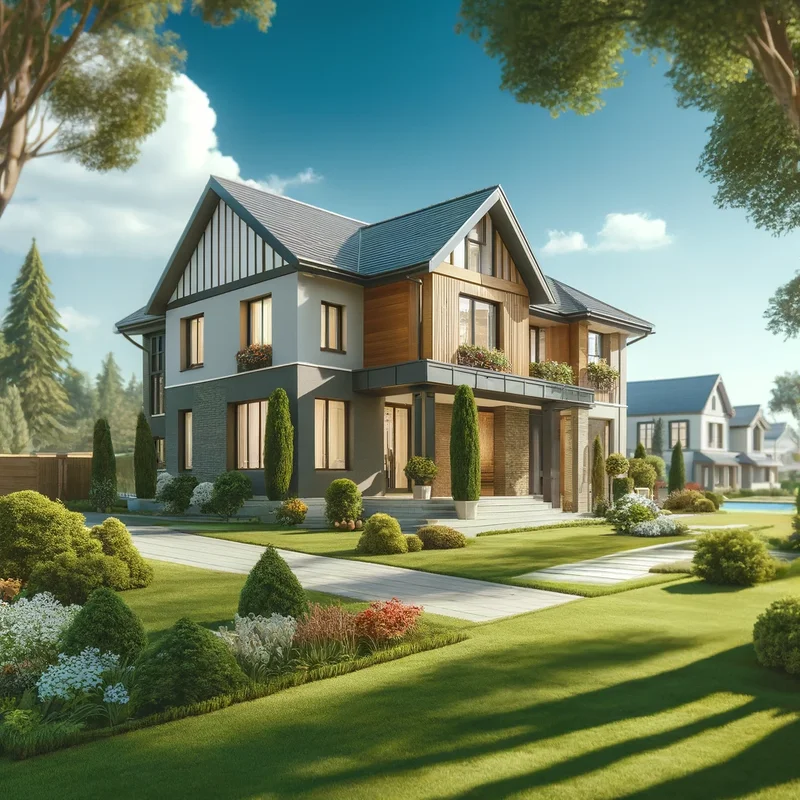The news out of Florida is grim. Three years after Hurricane Ian, Fort Myers Beach is still picking up the pieces, but the storm didn't just leave physical scars. It accelerated an already-existing trend: climate gentrification. Rising insurance costs, stricter building codes, and the simple economics of disaster recovery are pushing out working- and middle-class families, replacing them with luxury resorts and expensive homes. It’s a story playing out across the country, wherever the climate is changing and the costs of living in vulnerable areas are skyrocketing.
But I’m not here to write a eulogy for the middle class. I'm here to talk about solutions. About how technology, innovation, and a little bit of foresight can help us build a more resilient, more equitable future, even in the face of climate change.
The core problem in Fort Myers Beach, and in countless other coastal communities, isn't just the cost of rebuilding; it's the way we're rebuilding. Sticking to old methods, even with stricter codes, feels like rearranging deck chairs on the Titanic. We need to be thinking about smarter materials, modular construction, and distributed infrastructure.
Imagine a world where homes are built with advanced composites that can withstand Category 5 hurricanes, where solar panels are integrated into the very fabric of the roof, and where microgrids provide backup power during outages. This isn't science fiction; it's technology we have today. The challenge is making it affordable and accessible.
That's where innovation comes in. 3D-printed homes, for example, offer the potential to drastically reduce construction costs and build times. New financing models, like community resilience bonds, could help homeowners invest in upgrades that not only protect their properties but also lower their insurance premiums. What if your "home improvement" was actually an investment in the long-term survival of your community?
And speaking of insurance, let's talk about risk assessment. The current system, which relies on outdated flood maps and broad generalizations, is fundamentally unfair. We need to leverage AI and machine learning to create hyper-local risk models that accurately reflect the vulnerabilities of individual properties. This would allow insurers to offer more tailored policies, rewarding homeowners who take steps to mitigate their risks.
We can also create digital twins of our homes and communities and simulate different disaster scenarios. This would help us identify vulnerabilities before they become catastrophes, allowing us to proactively strengthen our defenses. It's like having a crystal ball that shows us the potential impacts of climate change, giving us the power to prepare and adapt. When I first started researching this, I honestly felt overwhelmed by the scale of the problem, but seeing the potential of these technologies, well, that's what keeps me going.
The news highlights how rising insurance costs are depressing home values, potentially leading to a "long-lasting economic shock." But what if we could turn that around? What if investing in resilience actually increased home values, making vulnerable communities more attractive to buyers and investors? Disaster and insurance costs are rising. The middle class is struggling to hang on

Melyssa Caballero, who moved to Lee County after being priced out of Miami, is now considering leaving Florida because her rent has more than doubled. "Little by little, you're going to see everybody going away," she says. But what if, instead of everyone going away, people were empowered to stay? What if technology could help us create communities where everyone, regardless of their income, can afford to live and thrive?
Look, this isn't just about saving homes; it's about saving communities. It's about preserving the social fabric that makes places like Fort Myers Beach so special. It's about ensuring that the people who built these communities aren't forced to leave because of climate change.
This requires a fundamental shift in our thinking. We need to stop viewing climate change as an inevitable disaster and start seeing it as an opportunity to build a better world. A world where technology empowers us to live more sustainably, more equitably, and more resiliently.
The challenge now is implementation. How do we get these technologies into the hands of the people who need them most? How do we overcome the barriers of cost, complexity, and inertia?
This requires a collaborative effort between governments, businesses, and communities. Governments need to create incentives for innovation, invest in research and development, and update building codes to reflect the latest advances. Businesses need to develop affordable, accessible solutions that meet the needs of vulnerable communities. And communities need to embrace these technologies, educate their residents, and advocate for policies that promote resilience.
I have seen on Reddit threads people talking about how they feel powerless in the face of climate change, but that sentiment is a complete misread of the situation. This challenge is not about individual action, it's about collective effort. It's about working together to build a future where everyone can thrive, regardless of where they live.
But with great power comes great responsibility. As we develop these technologies, we need to be mindful of their potential impacts. We need to ensure that they are used ethically, that they don't exacerbate existing inequalities, and that they are accessible to everyone.
This is our chance to build a more resilient, more equitable future. Let's not waste it.